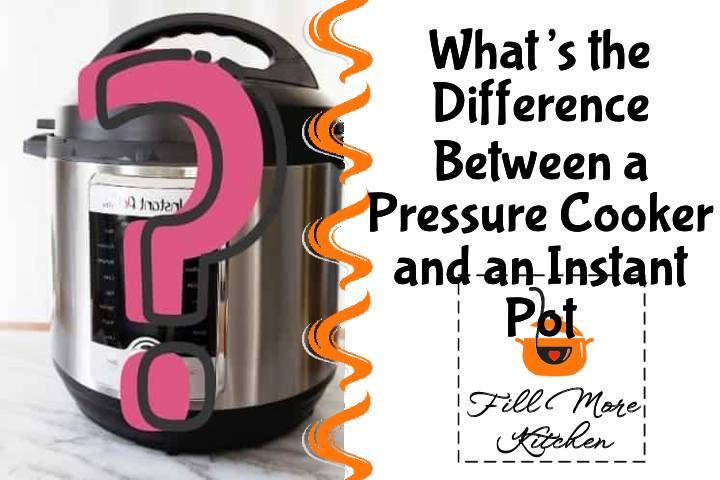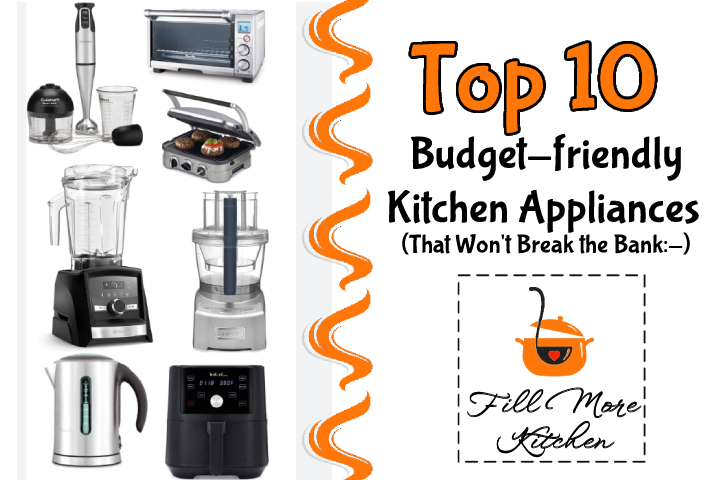Although pressure cookers were first introduced in the 19th century, their popularity dwindled for a while before making a comeback with various versions, leading to some confusion.
The main topic of discussion in this article is the distinction between pressure cookers and Instant Pots.
Can you distinguish between a pressure cooker and an Instant Pot?
Essentially, an Instant Pot and a Pressure Cooker are synonymous. The Instant Pot is a well-known brand of electric pressure cookers that offer additional presets like slow cooking, rice cooking, browning, and yogurt making – features that may also be present in other electric pressure cookers when compared to traditional stovetop pressure cookers.
Presumably, you have knowledge about electric pressure cookers, also known as the third generation of pressure cookers, since you are currently reading this article. However, if you do not possess such knowledge, allow me to acquaint you with it.
The electric pressure cooker is an upgraded version of the traditional stovetop pressure cooker, which uses its own internal heating source to boil food instead of relying on a stove. All you need to operate it is an electrical outlet.
Is an Instant Pot the Same Thing as an Electric Pressure Cooker?
Essentially, the Instant Pot is an electric pressure cooker that can also perform other cooking modes, automatically regulate temperature and pressure using sensors, and produce incredibly moist meat.
The Instant Pot is equipped with a modern digital control display that allows users to easily program and operate it for various tasks.
The Instant Pot has the ability to use sensors to monitor both pressure and temperature, and can then automatically make adjustments as necessary.
The Instant Pot has a feature that allows its heating element to activate periodically by monitoring levels, so when the levels drop, it signals the heating element to produce heat and increase the levels, and once the desired levels are reached, the heating element goes into standby mode.
Although other electric pressure cookers have the capability to perform this task, the conventional stovetop pressure cooker lacks automation in this regard. It is furnished with a gauge that displays the levels of pressure and temperature, and it is up to the user to monitor these levels and make necessary adjustments manually.
How do Instant Pots and Pressure Cookers Work?

Steam has been used to produce energy since the Industrial Revolution, and it’s still utilized for specific procedures in our modern society, such as pressure cooking.
Although both electric pressure cookers and regular stovetop pressure cookers rely on steam pressure, they possess distinct features and methods of achieving it.
Electric Pressure Cookers & Instant Pots
When it comes to electric pressure cookers and Instant Pots, they consist of two parts: a container for adding ingredients and a lid that seals the container when the internal pressure increases.
Once turned on, the electric pressure cooker initiates its internal heating component that warms up the contents of the container. As the liquid inside heats up, it generates steam. Due to the sealed container and lid, the pressure cannot exit, leading to an increase in pressure within the pressure cooker.
When using a pressure cooker, the boiling point of water inside the vessel is raised due to the increased pressure, resulting in temperatures as high as 250F/121C compared to the standard boiling point of 212F/100C at sea-level.
When using a pressure cooker, the rise in pressure causes heat and moisture to be absorbed by the food being cooked, resulting in significantly reduced cooking times of up to 75% compared to conventional cooking methods.
After cooking, it is necessary to depressurize the pressure cooker before opening the lid, and there are two methods to accomplish this.
- Natural release: Allowing the pressure to dissipate on its own after cooking is completed is known as natural release.
- Quick release: To depressurize the cooker rapidly, change the venting option from Sealed to Venting or Quick release, and the valve will emit a burst of steam.
Despite being sealed, a pressure cooker has a safety mechanism that allows steam to escape during the cooking process to prevent excessive pressure buildup.
How are Instant Pots and Regular Pressure Cookers Different?
There are several differences between regular stovetop pressure cookers and Instant Pots.
Conventional Pressure Cookers for Stovetops
- Heated using an outside source
- Operated manually
- Can only pressure cook
- Lacks a digital control panel.
- The pressure cooker can achieve greater pressure levels (15psi compared to 11.6 psi), resulting in slightly faster cooking times.
Instant Pots
- Internal heating source
- After initiating a cooking cycle, the Instant Pot will operate automatically.
- Has the ability to function as multiple other kitchen gadgets
- The digital control panel of the Instant Pot enables the user to customize settings, schedule a delay timer, and select pre-programmed options that are appropriate for specific types of food.
- Automatically turns off upon completion
- The Instant Pot has a safety feature that automatically shuts off the heating element if it detects hazardous conditions.
Is an Instant Pot Better Than a Regular Pressure Cooker?

Based on my experience with these kitchen appliances, I have found that the Instant Pot is a more flexible and user-friendly option compared to a traditional pressure cooker. Having the ability to cook without constant supervision (although not advised) while still achieving excellent outcomes has made my daily routine even more effortless.
While stovetop pressure cookers can still provide fast cooking, they become less appealing when compared to the greater benefits offered by an Instant Pot.
If you currently possess a pressure cooker for the stovetop and cannot rationalize buying another kitchen gadget, then using the stovetop pressure cooker is sufficient. However, if you are in the process of purchasing one, I strongly suggest considering an Instant Pot or any other electric pressure cooker with advanced features.
Is an Instant Pot Safer Than a Stovetop Pressure Cooker?
Due to the combination of high temperatures and high pressure, there is understandable concern about these appliances, as an explosion could have devastating consequences.
However, marketing a product that could potentially cause harm is a challenging endeavor. This is likely why manufacturers have invested significant resources in the development of these devices to guarantee their utmost safety.
While the Instant Pot is considered safer than traditional pressure cookers, it still has the potential to cause harm if not handled with caution as it, like other pressure cookers, requires steam to be released during and after cooking.
Users must exercise caution around the Instant Pot as the steam it emits is scorching and can cause burns upon contact with anything.
Although some individuals may have concerns about a pressure cooker exploding, modern pressure cookers are designed to prevent this by releasing pressure, adjusting temperature, and shutting off if unsafe conditions are detected. However, it is still advisable to ensure that the release hole is not obstructed during cooking as the pressure inside the cooker can reach extremely high levels.
While they should still be handled with care, modern pressure cookers and Instant Pots are generally safe to use.
Does an Instant Pot Cook Faster Than a Pressure Cooker?
Instant Pots, stovetop pressure cookers, and electric pressure cookers are highly regarded for their capacity to prepare food in a shorter time than almost any other cooking method due to the increased pressure inside the container, which causes anything inside it to cook faster than it would on a stovetop or in an oven where there is no build-up of pressure.
While regular stovetop pressure cookers can achieve a maximum of 15psi, most electric pressure cookers, including the Instant Pot, only reach 10-12psi, resulting in the traditional pressure cooker being faster than its electric counterparts.
If your main priority is quick cooking, then the stovetop pressure cooker is the optimal choice.
Can You Use Instant Pot Recipes in a Pressure Cooker?
As long as the instant pot recipes are appropriate for pressure cooking, they can be prepared in a pressure cooker; however, regular pressure cookers lack the same features.
Conversely, regular cookers are frequently limited to pressure cooking and may not be appropriate for recipes that require features commonly found in electric pressure cookers.
However, generally speaking, an electric pressure cooker can effectively execute an Instant Pot recipe. Additionally, a conventional stovetop pressure cooker can also be utilized to prepare the same recipes; however, it has limited functionality as it only offers one feature – pressure cooking.
Are ALL Instant Pots Pressure Cookers?
Instant Pots are both pressure cookers and more than that. Although they have a pressure cooking-function, it is just one of the features they offer.
The Instant Pot is a versatile appliance that can function as a rice cooker, slow cooker, and yoghurt maker, providing users with a range of options and making it a highly practical device.
While other brands produce units with similar functions, the popularity of the Instant Pot is evident in the fact that many recipes specifically call for it.
They are the preferred brand for pressure cookers and similar devices. To put it another way, when I think of such appliances, they are the first brand that comes to mind. The market may be dominated by other brands depending on your location.
Is the Instant Pot a Good Pressure Cooker?
The multitude of features in a multi-cooker can be overwhelming. The buzz surrounding the Instant Pot and its functionalities may create a sense of necessity. It seems that Instant Pot doesn’t need to invest in marketing anymore as many cooking bloggers frequently mention it.
There are individuals who harbor reservations about the Instant Pot, perhaps due to the belief that a multi-functional appliance may not perform tasks as effectively as a specialized one.
For all of its features, I can confidently recommend the Instant Pot as it has helped me achieve everything I had hoped for.
You can also check this video about “What’s the Difference Between a Pressure Cooker and an Instant Pot?”
Check out our top 10 reviews!
Related posts
https://fillmorekitchen.com/how-long-can-berries-be-left-out-at-room-temperature/
https://fillmorekitchen.com/can-you-put-plastic-in-an-oven/
https://fillmorekitchen.com/can-you-eat-parsley-stems-do-this/
https://fillmorekitchen.com/why-your-slow-cookers-gets-hot-on-the-outside-what-to-do/
https://fillmorekitchen.com/can-you-put-coffee-in-the-fridge-overnight/



